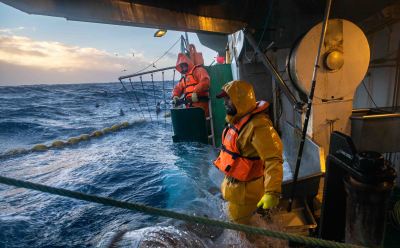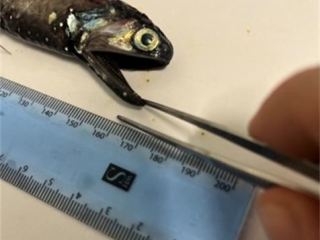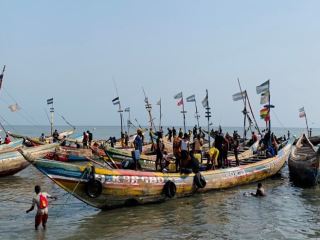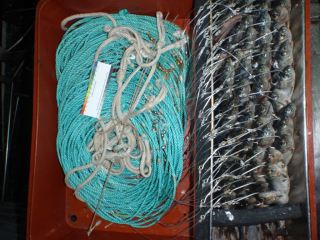
MRAG has been designing and implementing fisheries observer programmes since the early 1990s. Current programmes see observers deployed on toothfish, krill and icefish vessels in the Southern Ocean, on squid trawlers operating off the Falkland Islands, on transhipment vessels operating in the Atlantic and Indian Oceans and on bluefin tuna purse seiners and farms around the Mediterranean. In addition, MRAG deploys a Senior Fisheries Protection Officer to the British Indian Ocean Territory (BIOT).
Deployments range in scope from the provision of individual observers for vessels operating in remote regions to the supply of over 80 observers over a short time frame, deployed from ports throughout the Mediterranean (primarily Spain, Croatia and Turkey). Deployment lengths are variable dependent on vessel activities and programme, but in most cases, are no longer than 90 days. The global reach of MRAG’s observer programmes is reflected in the ports through which observers are deployed, including Singapore, Cape Town, Panama, Montevideo, Lyttelton (New Zealand) and Port Stanley (Falklands).
The programmes cover the full spectrum of compliance to science. CCAMLR (Commission for the Conservation of Antarctic Marine Living Resources) programmes, for example, focus on scientific data that are used by scientists to provide advice for the management of the fisheries. This includes information on catch composition, bycatch estimation and collection of biological data on target and bycatch species. The ICCAT (International Commission for the Conservation of Atlantic Tunas) bluefin tuna programme, by contrast, focuses mainly on compliance issues and the close monitoring of vessel and farm activities to ensure they are following the prescribed conservation and management measures.
Observer safety is the primary concern across all our programmes, and MRAG implements international best practices on safety across all programmes. We developed a pre-sailing checklist which allows observers to ensure all the correct safety equipment is on board and in date before departure from port. We also provide observers with a Personal Locator Beacon (PLB) and an independent (via satellite technology) means of communication with our head office in case of emergencies – this has now become mandatory across a number of RFMO (Regional Fisheries Management Organisation) observer programmes and has also been adopted by CCAMLR.
MRAG provides advice to Governments, RFMOs, vessel operators and NGOs on the development and management of programmes, and through reviews can advise on improvements to current ones. Recent and ongoing projects include provision of training and advice to crew of a toothfish vessel on CCAMLR conservation measures, development of a port state measures training course for port inspectors in Atlantic ports and a review of data collection by observers working on EU vessels off West Africa.
MRAG observer programmes can be divided into five thematic areas consisting of one or more specific observer programmes. Links to individual programmes can be found within each thematic area.
CCAMLR Scheme of International Scientific Observation
Transhipment Regional Observer Programmes
ICCAT Bluefin Tuna Regional Observer Programme
Falkland Island loligo squid observers
- MRAG provides a complete end-to-end observer service involving:
- Observer recruitment;
- Training;
- Programme oversight;
- Supply of scientific and safety equipment;
- Development of observer protocols and manuals specific to the fishery;
- Data collection and handling including database design and management;
- Travel logistics;
- Insurance;
- Technical support; and
- Data analysis and report production.
Current observer vacancies can be found at https://mrag.co.uk/work-us
Photo: Crew working on a toothfish longliner. Credit: Alastair King.





















